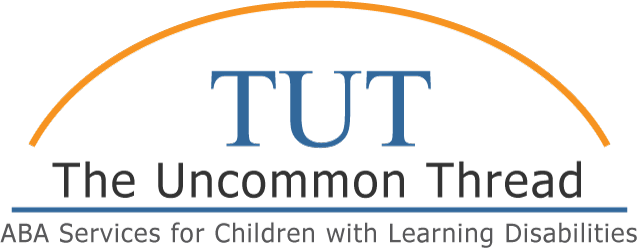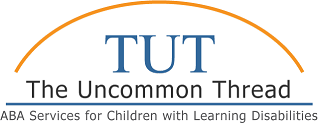For over a decade, The Uncommon Thread has been delivering educational events regarding autism treatment/ABA therapy to dozens of hospitals and pediatric practices across NJ. We provide these complimentary services through grand rounds, lunch and learns, staff meetings and even virtually. The continuous pursuit of knowledge on the latest in the science of ABA and related topics is critical to the success of the children we all serve. Please reach out to us to schedule an educational event on ABA for your staff. We are happy to tailor our presentations to your specific needs and available time frame. Contact us and find out how together, we can greatly improve the outcomes of children diagnosed with autism. Choose from the 5 educational seminars below.
The “How to Guide” for Effectively Treating Autism in New Jersey
This educational session will enable you to effectively communicate with your patient families and other medical professionals about why Autism Spectrum Disorder requires specialized treatment in the areas of: learning, language, behavior, social/emotional impairment, sleep, eating, and self-care. Attendees will leave with a greater understanding of Applied Behavior Analysis (ABA) – the only proven treatment for autism spectrum disorders. This knowledge will assist you in guiding families toward early intervention and ABA services. You will be better equipped to communicate the best plan of treatment, what to expect during treatment and how to manage a treatment plan so that the most significant gains and greatest outcome can be achieved.
Learning Objectives and Presentation Highlights.…
- Learn how and why Applied Behavior Analysis (ABA) works
- We’ll review ABA efficacy based on 40 years of research and statistical findings
- Understand the key components of an effective ABA program
- Understand the roles and responsibilities of each of the stakeholders that are involved in the process of treatment
- Learn about an effective ABA Treatment Cycle. This includes leading edge tools and technologies that provide accurate baseline skill levels for assessments, provide insight into the effectiveness of a treatment plan and continually tracks a child’s progress
Insight into Autism Insurance Process and the 7 Steps to ABA Treatment and Services
This educational session will enrich your breadth of knowledge surrounding the only proven treatment of autism spectrum disorder – Applied Behavior Analysis (ABA). You will also receive valuable information on how to retain ABA therapy and services through insurance and how to navigate the many steps to receiving ABA treatment. This knowledge will help you effectively communicate with your patient families and other medical professionals about how to obtain treatment and better ensure your patient receives the time critical services needed when the impact of treatment is at its apex.
Learning Objectives and Presentation Highlights…
- Review of the 7 major steps to ABA treatment. Starting with parental concern, to the autism diagnosis, to getting authorization from insurance, receiving ABA treatment and all the steps in between.
- Gain knowledge of the insurance process after a diagnosis has been made. We will provide a step-by-step guide for families to obtain critical information regarding ABA coverage/benefits from their insurance provider. We will also present an overview of the criteria required by insurance regarding the Initial Assessment Process, Authorizations, and Reassessments.
- Review the challenges and suggested solutions of working in collaboration with families, physicians and the insurance carriers.
The Research and Efficacy of ABA and the Behavior Analyst Certification Board Guidelines for Treating Autism
This educational session will enable you to effectively communicate with your patient families and other medical professionals about the research and efficacy of Applied Behavior Analysis – the only proven treatment for autism spectrum disorders. You will also be able to share how following the treatment guidelines set forth by the Behavior Analyst Certification Board will produce the greatest outcomes and most significant gains in areas such as: learning, language, and adaptive behaviors across the domains of communication, socialization, and daily living skills. This knowledge will allow you to communicate the best plan of treatment, what to expect during treatment and how to manage a treatment plan successfully.
Learning Objectives and Presentation Highlights ….
Review of the Autism Treatment Guidelines set forth by the BACB. Details include:
- Treatment Settings and Models (Comprehensive ABA verses Focused ABA)
- Assessments, Dosage, Treatment Goals and Tracking Progress
- Parent Involvement and Training
- Discharge and Transition Planning
Review the latest in the science of Applied Behavior Analysis. Details include:
- ABA Efficacy – A detailed review of 40 years of research and statistical findings
- Principles and teaching methods of ABA
Have You Ever Seen an ABA Treatment Plan In Action?
This educational session will reveal the basic components and actual performances of an Applied Behavior Analysis (ABA) treatment plan for children with Autism Spectrum Disorder. You’ll gain a greater understanding of why the teaching science of ABA is the only proven treatment for ASD, and witness first-hand how ABA produces significant improvements in areas such as: learning, language, and adaptive behaviors. The knowledge garnered from this session will enable you to effectively communicate to your patient families how a strong ABA treatment plan is delivered and executed, what physicians and families can expect during treatment, and how families can constructively support their child during the treatment process – all critical to the success of the child with ASD.
Learning Objectives and Presentation Highlights.…
- Learn about ABA efficacy based on 40 years of research and statistical findings
- Understand how treatment plans are developed based on an initial assessment and insurance authorization
- See the actual execution of an ABA treatment plan highlighting the following areas:
- Managing Behaviors and Common Interventions for Problem Behavior
- Discrete Trial Teaching – Breaking Down Learning & Skill Acquisition into Small Components
- Natural Environment Teaching and Incidental Teaching
- Shaping, Chaining, Manding – Important Techniques of ABA
- Data Collection – Measuring Behavior and Skill Acquisition
- Graphs and What They Tell Us
Navigating the Treatment Planning Process: From Establishing Medical Necessity through Providing Therapy
This educational session will enrich your breadth of knowledge surrounding the best treatment for autism (ABA) and the medical necessity criteria according to The DSM-V. This knowledge will help you effectively communicate with your patient families and other medical professionals about the best plan of action and treatment for your patients with ASD. You will receive an overview of how to retain therapy and services through insurance, the appropriate treatment dosage according to the research, and what to expect during the steps of the treatment process. This in turn will better ensure your patient receives the time critical services needed and that the family is equipped to support their child when the impact of treatment is at its apex.
Learning Objectives and Presentation Highlights.…
- Learn how the combination of DSM-V guidelines along with Physician Diagnostic Report establishes and defines medical necessity
- Have a greater understanding of ABA Efficacy – 40 years of research and statistical findings
- Understand the autism treatment guidelines set forth by the Behavior Analyst Certification Board.
- You’ll realize why following these guidelines produce the greatest outcomes and most significant gains in children with ASD. Details include:
- Treatment settings and models (Comprehensive ABA vs Focused ABA)
- Service Authorization and Dosage
- Assessments Process
- Determining programming based on assessments
- Measuring Success
- Professional and Ethical Compliance Code for Behavior Analysts
- Insurance Authorization and Re-authorization
- Parent Involvement and Training
- Transition Planning


